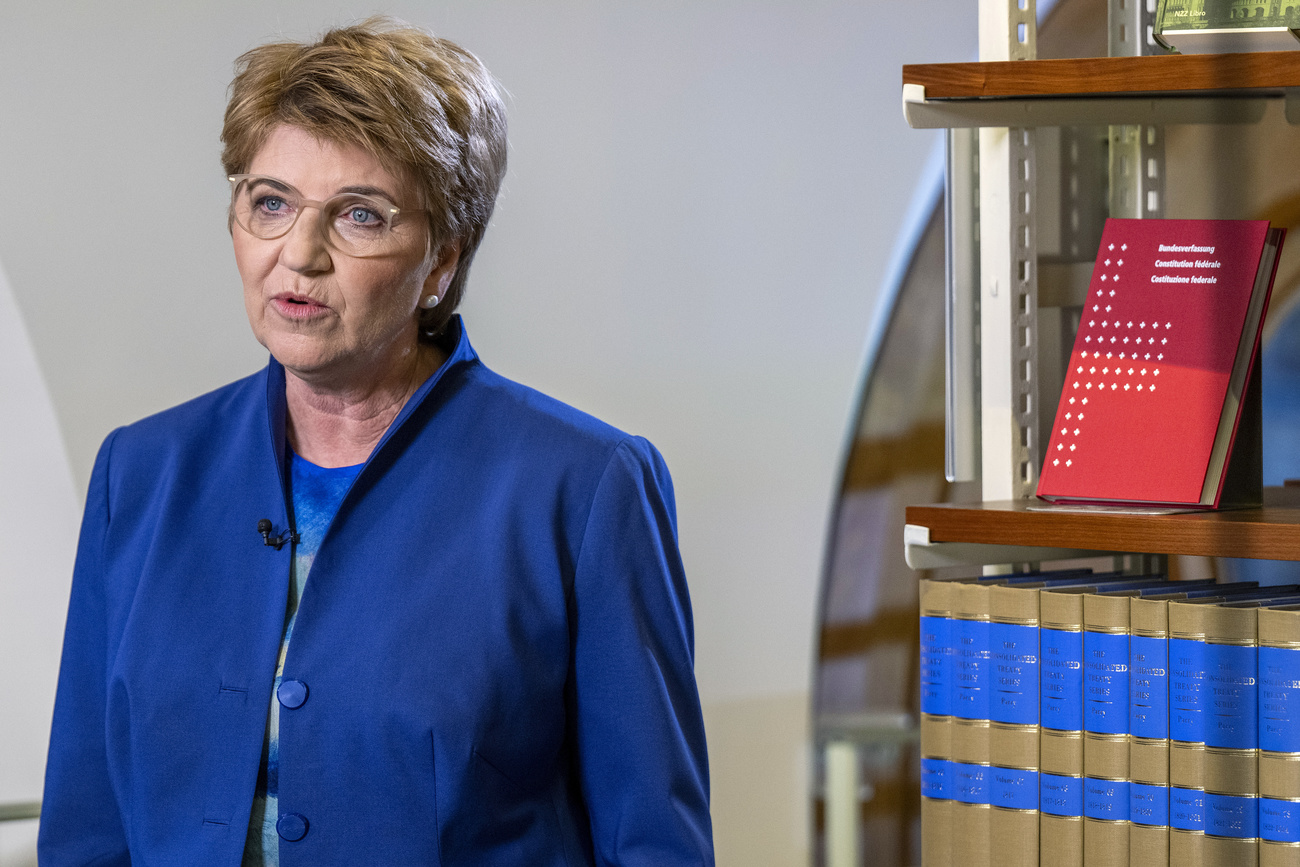
New Year’s speech: Swiss president calls for respect and courage

The Swiss president for 2024, Viola Amherd, has called on people to show courage and to listen to others in her New Year’s address to the nation.
Overcoming difficult times is Switzerland’s “great strength”, declared Amherd on January 1.
In her short speech, she noted that books were used to learn lessons from history. “Unfortunately, what we are seeing today is that events that we hoped would belong to the past are repeating themselves,” she lamented.
“This gives us a feeling of insecurity. But this new year is also an opportunity to open a new chapter. A chapter of blank pages. It’s up to us to fill them. It’s a comforting thought.”
+ After conquering army, Viola Amherd steps into role of Swiss President
Amherd, who assumes the rotating Swiss presidency in 2024, is also head of the Federal Department of Defence, Civil Protection and Sport.
“Instead of feeling powerless or helpless, we can take action,” she declared. “And there are many things we can do. We are all helping to determine the course of history. That is the very idea of our democracy. A democracy that we have to take care of, by taking responsibility and getting involved.”
Her recipe for shaping the nation involves better listening, “being able to understand each other” and “investing ourselves”. “A shared responsibility is less of a burden,” she noted.
+ Swiss defence minister faces questions over Ruag and Leopard tanks
She added: “Respecting each other not only makes life easier, but it also enriches it. Every good story has twists and turns. Heroes make courageous decisions in the face of obstacles.”
“In the past, our history has seen many turning points. We have proved that during difficult times, we can overcome many things together. That is Switzerland’s great strength.”
In 2024, everything may not be perfect, and residents will experience “difficult times again”, said the Swiss president. “But if we want to, we can get things moving together,” she said.
This news story has been written and carefully fact-checked by an external editorial team. At SWI swissinfo.ch we select the most relevant news for an international audience and use automatic translation tools such as DeepL to translate it into English. Providing you with automatically translated news gives us the time to write more in-depth articles. You can find them here.
If you want to know more about how we work, have a look here, and if you have feedback on this news story please write to english@swissinfo.ch.

In compliance with the JTI standards
More: SWI swissinfo.ch certified by the Journalism Trust Initiative





























You can find an overview of ongoing debates with our journalists here . Please join us!
If you want to start a conversation about a topic raised in this article or want to report factual errors, email us at english@swissinfo.ch.